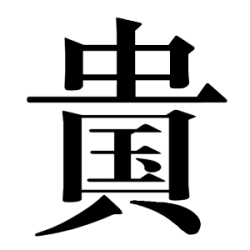“Expensive country”的版本间的差异
来自China Digital Space
| 第1行: | 第1行: | ||
贵国 (guì guó): expensive country | 贵国 (guì guó): expensive country | ||
| − | Sarcastically refers to China. | + | [[File:expensive country.png|250px|thumb|left|''“Expensive country.”'']] Sarcastically refers to China. This term was popularized because of discontent over high prices; ''gui guo'' is a country in which basic needs like housing, fuel, power, and healthcare, are all too costly. |
| − | + | ''Gui'' is also the honorific of “your”; ''gui guo,'' literally “your honorable country,” is used in diplomatic speech. Using ''gui guo'' in reference to China separates the speaker from his country, in opposition to 我国 wǒ guó, “our country.” [http://chinadigitaltimes.net/2013/01/in-chinas-cyberspace-dissent-speaks-code Xiao Qiang and Perry Link explain] that in this turn of phrase, netizens imply that “the state that belongs to you rulers, not to me.” | |
| − | |||
| − | |||
[[Category: Grass-Mud Horse Lexicon]] | [[Category: Grass-Mud Horse Lexicon]] | ||
2013年2月6日 (三) 15:50的版本
贵国 (guì guó): expensive country
Sarcastically refers to China. This term was popularized because of discontent over high prices; gui guo is a country in which basic needs like housing, fuel, power, and healthcare, are all too costly.
Gui is also the honorific of “your”; gui guo, literally “your honorable country,” is used in diplomatic speech. Using gui guo in reference to China separates the speaker from his country, in opposition to 我国 wǒ guó, “our country.” Xiao Qiang and Perry Link explain that in this turn of phrase, netizens imply that “the state that belongs to you rulers, not to me.”





